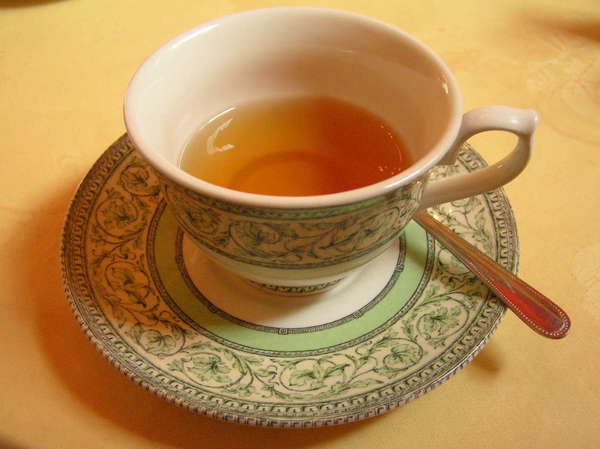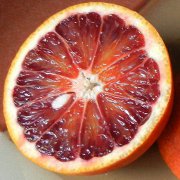Tea and Iron Absorption
Wikipedia: Human_iron_metabolismLast Updated: Dec. 21, 2015
 Tea can inhibit iron absorption under some circumstances, but this effect is unlikely to harm most people. Photo © Laurel F, CC BY-SA 2.0
Tea can inhibit iron absorption under some circumstances, but this effect is unlikely to harm most people. Photo © Laurel F, CC BY-SA 2.0Tea's effect on iron is only a matter of concern for people who are iron deficient or at risk of iron deficiency, including vegetarians, pregnant women, rapidly growing adolescents, athletes involved in intense endurance training, and people with medical conditions causing iron loss.[1] Several studies have found that the effect of tea on iron absorption is not an issue for normal, healthy adults.[4,5,6]
The effect of tea on iron absorption can be minimized or mitigated by drinking tea between meals instead of during a meal, and by consuming foods containing Vitamin C, and meat, fish, or poultry, together with meals, as these factors are known to improve iron absorption.[1,2,3]

Foods rich in vitamin C enhance iron absorption.
Heme iron vs non-heme iron
Iron in the diet can be classified in two types: heme iron and non-heme iron. Heme iron is found in red meat, poultry, fish, and other seafood. Non-heme iron includes all other sources of meat, including eggs, milk and cheese, and all plant-based sources of iron. Heme iron is more easily absorbed by the body, and is not effected significantly by tea consumption, or by any other dietary factors.[3]Herbal tea and iron
Tea is not the only commonly-consumed beverage that can inhibit iron absorption. Polyphenols that inhibit iron absorption are found in a wide variety of foods, including some fruits and vegetables, coffee, wine, and spices.[1] Many herbal teas also inhibit iron absorption, although one study examined a number of common herbal teas and found that although they all inhibited iron aborption, they all did so less than black tea.[3] In a bit of conflicting evidence, one study found that mint tea enhanced iron absorption, both on its own and when consumed with vitamin C.[7]In summary
Tea does inhibit the absorption of non-heme iron, all iron other than the iron found in meat and seafood. However, this effect is unlikely to cause any negative effects in normal, healthy adults; it is only a matter of concern for people at risk of iron deficiency. The negative effects of tea on iron absorption can be minimized by consuming tea between meals instead of with meals, and by following other practices known to aid iron absorption, such as consuming foods rich in vitamin C with meals and eating some meat or seafood with your meal.References & Further Reading
- 1. Iron, Micronutrient Information Center, Linus Pauling Institute, Updated Aug. 2009.
- 2. Effect of tea and other dietary factors on iron absorption., Critical Reviews in Food Science and Nutrition, Sep. 2000, Vol. 40, No. 5, pp. 371-98.
- 3. R.F. Hurrell et. al, Inhibition of non-haem iron absorption in man by polyphenolic-containing beverages., British Journal of Nutrition, April 1999, Vol. 81, No. 4, pp. 289-95.
- 4. Karin Schlesiera et. al. Comparative evaluation of green and black tea consumption on the iron status of omnivorous and vegetarian people, Food Research International, June 2011.
- 5. Consumption of black, green and herbal tea and iron status in French adults, European Journal of Clinical Nutrition, Feb. 2007, No. 61, pp. 1174-1179.
- 6. Association between consumption of black tea and iron status in adult Africans in the North West Province: the THUSA study. (PDF), British Journal of Nutrition, 2008, Vol. 100, No. 2, pp. 430-7.
- 7. F. Zaida et. al., Iron Availability and Consumption of Tea, Vervain and Mint during Weaning in Morocco, Annals of Nutrition & Metabolism, Vol. 50, No. 3, 2006.

